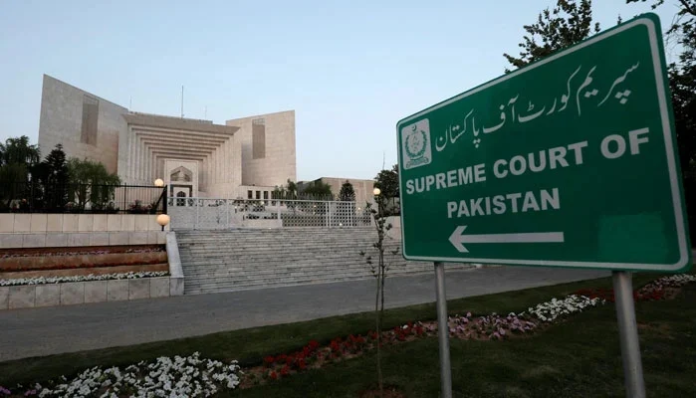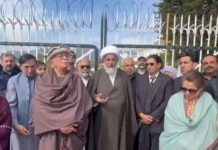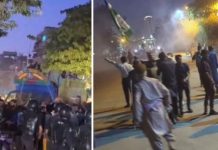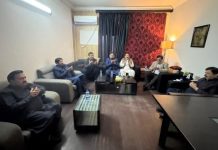ISLAMABAD, DEC 13 (DNA): The Supreme Court’s constitutional bench has granted conditional permission to military courts to announce verdicts in cases involving 85 suspects — allegedly involved in the May 9, 2023, riots.
In its order on the hearing of the appeals against civilians’ military trial, the constitutional bench said judgements of military courts would be conditional to the top court verdict on the cases pending before it.
“The suspects eligible for clemency should be granted it and released, while those who cannot be released should be transferred to prisons after being sentenced,” the constitutional bench said.
The bench, led by Justice Aminuddin Khan, heard intra-court appeals challenging military court decisions. The bench also included Justice Jamal Khan Mandokhail, Justice Muhammad Ali Mazhar, Justice Syed Hasan Azhar Rizvi, Justice Naeem Akhtar Afghan, Justice Musarrat Hilali and Justice Shahid Bilal Hassan.
The top court, in its unanimous verdict by a five-member bench, on October 23 last year declared civilians’ trials in military courts null and void after it admitted the petitions challenging the trial of civilians involved in the May 9 riots.
However, on December 13, 2023, a six-member bench of the apex court — with Justice Hilali differing with the majority — suspended its October 23 order on petitions challenging the earlier verdict.
The PTI called the Supreme Court’s 5-1 decision to suspend its ruling of nullifying military trials of civilians a “judicial coup”.
The more than 100 civilians facing military trials were those who had allegedly ransacked military installations across the nation on May 9, following PTI founder Imran Khan’s arrest in a graft case.
The hearing
At the outset, Justice Mandokhail remarked that arguments should focus on whether the annulled provisions of the Army Act align with the Constitution. He questioned whether amendments to the Army Act could bring all individuals under its purview, noting that the act was enacted prior to the 1973 Constitution.
Justice Mazhar asked for reasons behind the annulment of provisions in the judicial verdicts.
In response, Ministry of Defence’s lawyer Khawaja Haris pointed out flaws in the Supreme Court’s earlier decisions.
Justice Mazhar further noted that details of the May 9 incidents had been requested, but so far, the case only involved the Corps Commander House. He asked whether the matter would remain limited to this case alone.
Additional Attorney General replied that all details had been received earlier in the morning and would be submitted as a miscellaneous application.
Justice Hilali raised concerns about the trials conducted under the annulled provisions. She asked what would happen to cases adjudicated before May 9 under these provisions.
The defence ministry’s counsel responded that decisions made under the provisions before their annulment are generally upheld. Justice Hilali said that this approach might be discriminatory towards the accused.
Justice Mandokhail noted that individuals voluntarily join the armed forces and are aware of the applicability of the Army Act, which restricts certain fundamental rights.
He added that the Army Act was established to govern rules and discipline within the military. Haris countered, arguing that no one joins the military with criminal intent, and fundamental rights are only curtailed when crimes are committed.
Justice Mandokhail asked whether the Supreme Court, in an appeal, would be confined to the appellant’s plea or could examine other aspects of the case. Justice Aminuddin remarked that while parties could limit themselves to their submissions, the court was not bound by such limitations.
At the conclusion of the hearing, the constitutional bench issued an order allowing military courts to announce verdicts for 85 suspects. The bench stipulated that these decisions would remain subject to the outcome of the Supreme Court’s pending cases.
The bench further directed that suspects eligible for leniency should be granted relief and released, while those ineligible should be sentenced and transferred to prisons.
The hearing of the military courts’ cases was adjourned until after the winter recess.

















